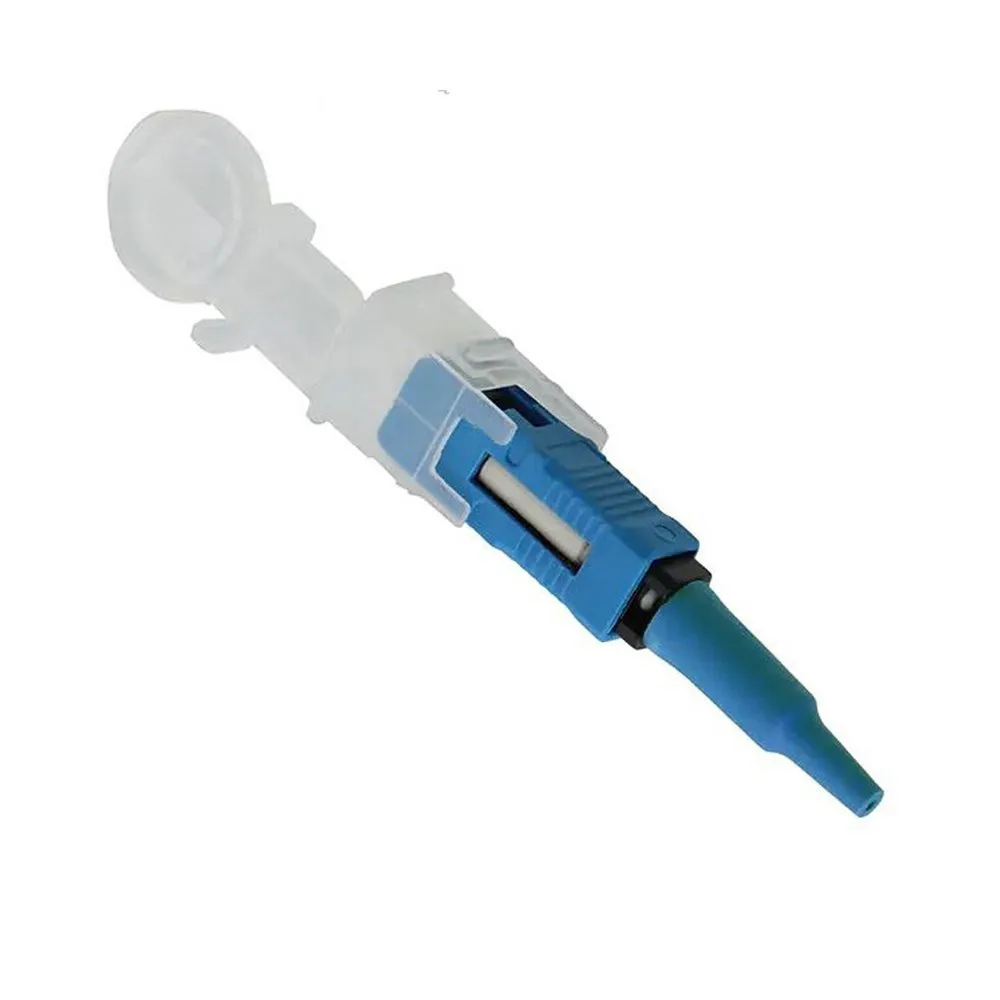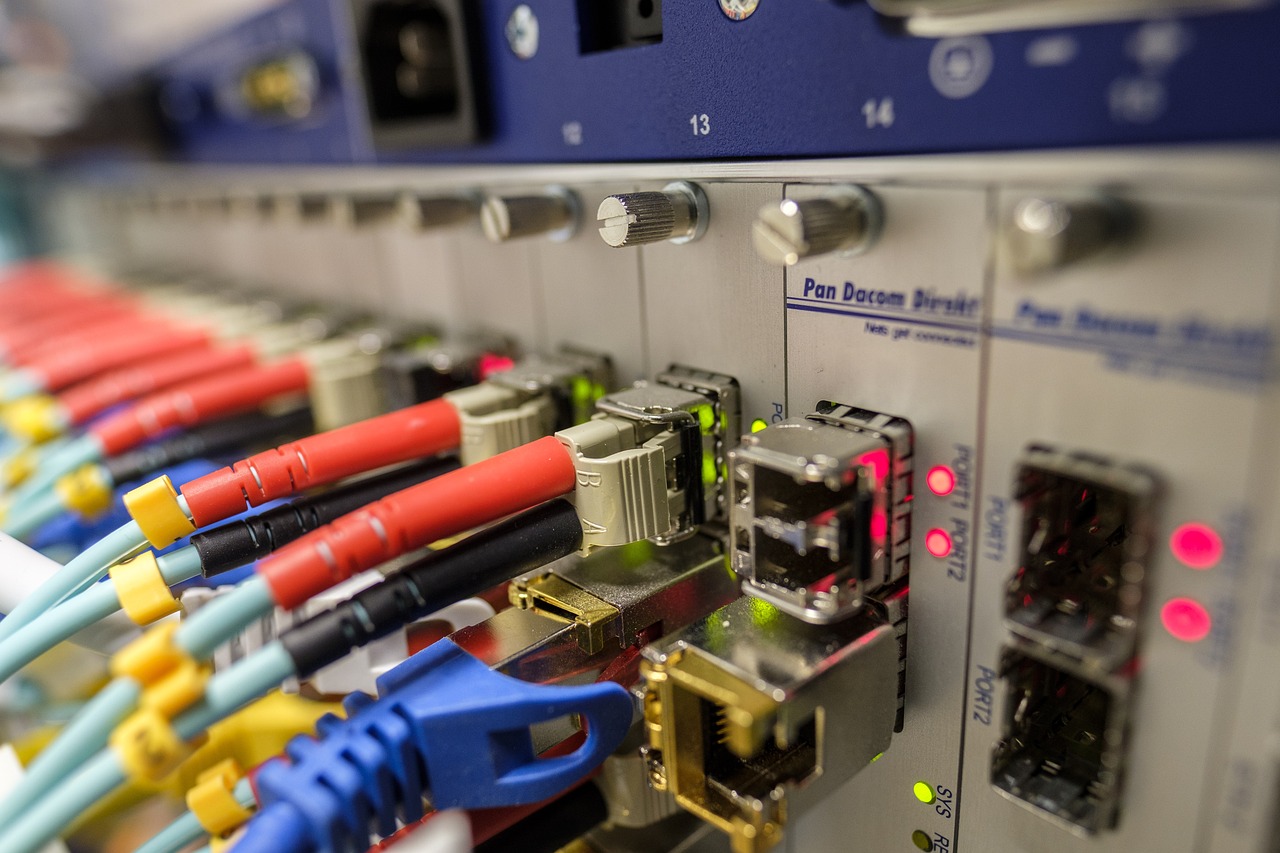High-Quality 900um SC/UPC Field Assembly Optical Connectors: Fast Termination for Single Fiber with Precision Zirconia Material

Understanding 900um SC/UPC Optical Connectors
When it comes to Optical Connectors, the SC/UPC connectors stand out as a popular choice for fiber optic applications. These connectors are known for their reliability, efficiency, and ease of use, making them a preferred option in the industry.
What Makes SC/UPC Connectors Stand Out?
Key Features of SC/UPC Connectors
Versatility: SC/UPC connectors are versatile and can be used in various optical networking applications, including data centers, telecommunication networks, and broadband networks.
Low Insertion Loss: These connectors offer low insertion loss, ensuring minimal signal loss during transmission.
High Return Loss: With high return loss capabilities, SC/UPC connectors minimize signal reflections, resulting in better overall performance.
Durability: The robust design of SC/UPC connectors ensures durability and long-term reliability in demanding environments.
The Significance of 900um in Fiber Optics
The 900um measurement refers to the outer diameter of the fiber optic cable. This size is particularly significant as it allows for compatibility with a wide range of fiber types and applications. The 900um diameter provides flexibility while maintaining sturdiness, making it an ideal choice for various connectivity needs.
The Basics of Optical Connector Types
Comparing SC/UPC with Other Connectors
When comparing SC/UPC with other optical connectors such as LC or FC connectors, several factors come into play. While each connector type has its advantages, the versatility and cost-effectiveness of SC/UPC connectors make them a preferred choice for many applications.
Why Choose SC/UPC for Your Fiber Optic Needs?
Cost-Efficiency: SC/UPC connectors offer a cost-effective solution without compromising on performance or reliability.
Ease of Use: The simple push-pull mechanism of SC/UPC connectors makes them easy to install and maintain.
Compatibility: These connectors are compatible with various fiber types and cable sizes, providing flexibility in network design and implementation.
The Importance of Fast Termination in Field Assembly
In the realm of optical fiber deployment, fast termination plays a pivotal role in ensuring efficient and timely installations. Let's delve into the significance of this aspect and how it aligns with the advantages of SC/UPC connectors.
Breaking Down Fast Termination
The Need for Speed in Optical Fiber Deployment
The demand for rapid deployment of optical fiber networks is ever-present, driven by the continuous expansion of telecommunications infrastructure. Fast termination addresses this need by streamlining the installation process, allowing for quicker network rollouts to meet escalating connectivity demands.
How Fast Termination Enhances Efficiency
Fast termination techniques not only expedite installation but also contribute to enhanced operational efficiency. By reducing the time required for connectorization and splicing, fast termination minimizes service disruptions and accelerates the delivery of high-speed connectivity solutions to end-users.
Field Assembly Advantages with SC/UPC Connectors
Simplifying Field Installations
SC/UPC connectors offer a streamlined approach to field assembly, simplifying the intricate task of connectorizing optical fibers on-site. Their user-friendly design and compatibility with various fiber types enable swift and hassle-free terminations, optimizing overall deployment processes.
Reducing Installation Time and Costs
The efficiency gained from fast termination using SC/UPC connectors translates into tangible cost savings. Accelerated installation times directly impact labor costs while also minimizing downtime during network upgrades or expansions. This cost-effective approach aligns with the growing emphasis on maximizing operational efficiency within fiber optic deployments.
Why Single Fiber Applications Benefit from SC/UPC Connectors
In the realm of fiber optic connectivity, the essence of single fiber applications lies in their focused and efficient transmission capabilities. Understanding the distinction between single and multi-fiber applications sheds light on the specific advantages that single fiber solutions offer.
The Essence of Single Fiber Connectivity
Understanding Single vs. Multi-Fiber Applications
Single fiber connectivity involves the transmission of data through a single optical fiber, providing a dedicated pathway for signal transfer. In contrast, multi-fiber applications utilize multiple fibers within a single cable assembly to accommodate higher data throughput or diverse signal types.
The Advantages of Single Fiber Solutions
Space Efficiency: Single fiber solutions require less physical space, making them ideal for deployments where space is limited or where future scalability is a consideration.
Signal Integrity: By focusing on individual signal pathways, single fiber applications maintain superior signal integrity and minimize interference compared to multi-fiber setups.
Simplified Maintenance: The streamlined nature of single fiber connections simplifies maintenance and troubleshooting processes, reducing operational complexities.
SC/UPC Connectors: A Perfect Match for Single Fiber
Enhancing Performance in Single Fiber Systems
The precision and reliability of SC/UPC connectors complement the inherent advantages of single fiber applications. Their low insertion loss and high return loss characteristics ensure minimal signal degradation, preserving the integrity of transmitted data in single fiber setups.
Case Studies: Success Stories with SC/UPC
Telecommunication Networks: In telecommunications, the deployment of SC/UPC connectors in single fiber configurations has demonstrated enhanced network stability and consistent signal quality over extended periods.
Data Centers: Data centers leveraging SC/UPC connectors for single fiber connections have reported improved efficiency in data transmission and reduced downtime related to maintenance activities.
The Role of Precision Zirconia Material in Optical Connectors
In the realm of fiber optics, precision holds paramount importance in ensuring optimal performance and reliability. When it comes to optical connectors, the choice of material significantly impacts connectivity quality and long-term functionality.
The Importance of Precision in Fiber Optics
Why Material Matters: Zirconia vs. Other Materials
The selection of connector material is critical in determining the overall precision and durability of optical connections. Zirconia, known for its exceptional hardness and resistance to wear, offers a level of precision that surpasses traditional materials like plastic or metal. Its superior mechanical properties contribute to stable and consistent performance in demanding optical environments.
The Impact of Precision on Connectivity Quality
The precision of zirconia material directly influences the insertion loss, return loss, and overall signal integrity within optical connectors. By maintaining tight tolerances and dimensional accuracy, zirconia enhances the alignment and mating of fibers, resulting in minimal signal degradation and superior connectivity quality.
Zirconia in SC/UPC Connectors: Enhancing Performance
The Benefits of Zirconia for SC/UPC Connectors
Exceptional Durability: Zirconia's hardness ensures long-term durability, making it resistant to abrasion and wear even under challenging operational conditions.
Stable Performance: The precise nature of zirconia promotes stable connector performance over time, contributing to reliable signal transmission without degradation.
Corrosion Resistance: Zirconia's corrosion-resistant properties safeguard connectors from environmental factors, ensuring sustained performance in varied deployment scenarios.
Real-World Applications: Zirconia’s Role in High-Quality Connections
Telecommunication Networks: Deployments utilizing zirconia-based SC/UPC connectors have demonstrated consistent high-quality connections, supporting uninterrupted data transmission across extensive network infrastructures.
Broadcasting Systems: In broadcasting applications, zirconia-enhanced connectors have proven instrumental in maintaining signal integrity during prolonged broadcast operations, contributing to seamless content delivery.
See Also
Insight into the SC/APC Single-Mode Fiber Optic Connector for FTTH Usage
Exploring the 2.0 x 5.0mm 1FO Mini SC FastConnect Reinforced Field Connector for SM G657.A2 Fiber
Key Characteristics of 3 IN 1 SLIM SC/APC Factory Optical Connector Cable Assembly


